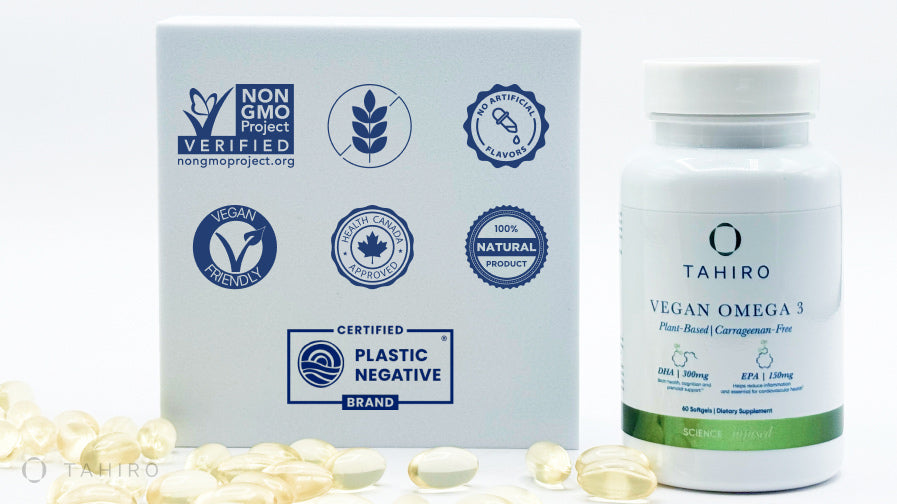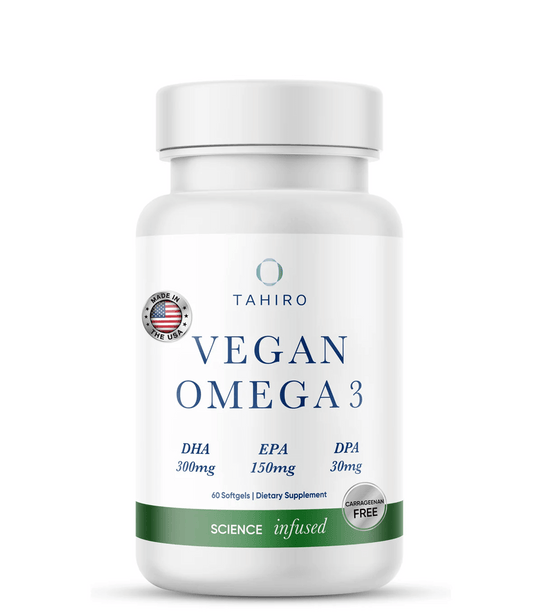Keeping a healthy blood pressure is essential for overall well-being since high blood pressure is a significant factor for several cardiovascular conditions. Research shows that over 45% of adults suffer from
uncontrolled high blood pressure.
These alarming statistics indicate that individuals must be active in managing high blood pressure.
Diet, nutrition, and other healthy lifestyle choices are key to controlling the condition. Omega-3 fatty acids seem promising for promoting good heart health, but can they positively affect blood pressure?
In this article, we’ll explore the role of omega-3 fatty acids in lowering blood pressure, both from food sources and supplementation.
Does Omega-3 Reduce Blood Pressure?
Omega-3 fatty acids are essential fats, meaning they must be obtained from the diet since the body cannot produce them. They have gained popularity thanks to their anti-inflammatory properties, which lower cholesterol and promote healthy blood vessels.
Research shows a link between omega-3 fatty acids and blood pressure regulation (1). While research is ongoing, several key findings suggest that omega-3 may indeed have a positive impact on blood pressure.
But how exactly can omega-3 fatty acids help reduce blood pressure?
As mentioned, omega-3 fatty acids have anti-inflammatory effects, and they seem to help promote relaxation of the blood vessels (1), reducing resistance. Ultimately, this leads to better circulation and lower blood pressure.
According to research, these effects are mainly seen in people with high blood pressure (2). It doesn’t seem to lower blood pressure in people with normal blood pressure.
Lifestyle Changes To Manage High Blood Pressure
If you wish to lower your blood pressure, consider the potential of omega-3 fatty acids along with these dietary and lifestyle changes:
-
Include cold-water fish. Wild-caught fatty fish (mackerel, sardines, and salmon) are a great source of omega-3 fatty acids. When possible, avoid farmed raised since it may have lower levels of omega-3 and other contaminants.
-
Plant-based sources. Other great sources of omega-3 include flaxseeds, chia seeds, hemp seeds, and algae.
-
Omega-3 supplements. Even if you can meet the daily intake of omega-3, it is highly recommended to include a consistent daily intake of omega-3 supplements to maintain saturation of these important fatty acids at the cell level at all times.
-
Exercise regularly. Regular physical activity can complement the benefits of omega-3s in managing blood pressure.
-
Manage stress. Including stress-reduction techniques, such as meditation, yoga, and deep breathing, can help reduce high blood pressure.
Omega-3 and Blood Pressure Medication
While omega-3 fatty acids can help reduce blood pressure, you need to be careful when taking them, especially if you are taking blood pressure medication. Here’s what you need to know about the interaction between omega-3s and blood pressure medication (3).
-
Enhance blood pressure reduction. Omega-3 supplements, combined with blood pressure medications, can intensify the results, potentially leading to better control of hypertension.
-
Reduced medication dosages. Some people may find the need to lower their blood pressure medication when taking omega-3 supplements, suggesting a synergistic effect between omega-3s and medication in managing blood pressure. However, it's crucial to consult with a healthcare professional before making any adjustments to medication dosage to ensure that changes are safe and appropriate for individual health needs.
-
Blood thinning effect. Omega-3 may interact with blood-thinning medications like warfarin and aspirin, potentially increasing the risk of bleeding complications. It’s crucial to exercise caution when combining omega-3 supplements with these medications and consult with a healthcare provider to ensure safe coadministration.
Can Omega-3 Supplements Lower Blood Pressure?
YES! Omega-3 fatty acids can help reduce blood pressure, whether from food or supplements. Find out what is the recommended dosage for omega-3. In a nutshell, findings show that consuming 3 grams per day of omega-3 may be enough to get all the health benefits (4).
Reaching 3 grams of omega-3 through food may be challenging. It would mean consuming 4 ounces of cold-water fish per day, which may put you at risk for mercury poisoning. This is why omega-3 supplements are a convenient, cost-effective, and efficient way to get a consistent daily dose of omega-3.






